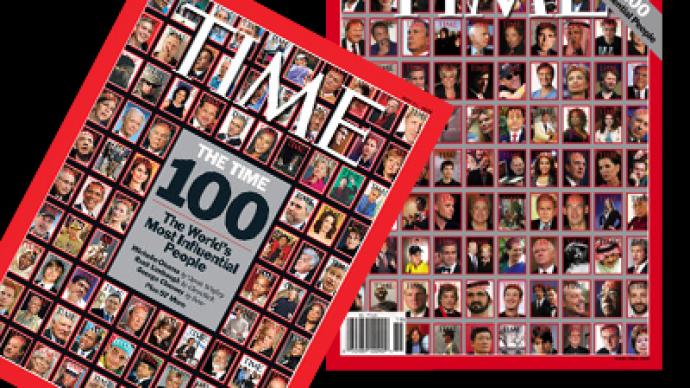TIME’s top 100 who?

Time magazine annually mixes, matches and puts together an eclectic group of folk – and anoints them with the word “influence”.
This year’s group has been announced with great fanfare – but how prominent are these figures, and what is this list for anyway? “It’s just so stupid! And meanwhile, real news, interesting news, news that would actually sell more magazines is not getting sold,” said editorial columnist Ted Rall. The grand lady of the list remains media mogul Oprah Winfrey – this is her ninth appearance way ahead of the U.S. President who trails at just six.So this must make her the world’s most consistently influential person – right?While few would argue that the American President has far reaching impact, some of the other picks are outright bizarre. Such as three time winner South Korean pop star and actor “Rain,” along with teenage pop sensation Justin Bieber, and fresh-faced Hollywood “gossip girl” Blake Lively. While their influence on world affairs is a bit early to speak of, ‘making the list’ could have a great influence on their own careers. “The most important thing is for the people on the list to be celebrating, they can use it as a sound bite to promote themselves. No doubt there are many-many angry people, probably a larger group, who are angry about their placement in the list, their prominence in the list, or their absence from the list, particularly if they were in the list the last few years,” said financial analyst Max Wolff. This now includes Sarah Palin – kicked off the pedestal by Palin #2 – Michelle Bachmann.“Justin Bieber – really? Michelle Bachmann – really? The thing is, influential? These people are not influential. I mean, is there going to be a musical movement launched by Justin Byeber? Bieber? No! I don’t even know how to pronounce his name. Michelle Bachman is a weirdo, she is not going to influence anyone,” said Rall said. World influence also requires somewhat of a global reach, and that’s another obstacle – Time magazine’s chosen ones are overwhelmingly American.US mayors, school chancellors, comedians and TV personalities – some of whom might not be recognized by many Americans – let alone people throughout the rest of the world.“They used to go out and actually generate original stories, now they just make lists. These people are influential? To do what? And how? A chef in LA is as important as the President of the United States,” said blogger and filmmaker Danny Schechter. This has created an echo chamber for current and wannabe celebrities.“Being famous has become a full-time job and a serious obsession for a lot of people around the world and the United States for certain. The way you get on TV, and get noticed and are seen as important is by getting on TV, and getting noticed and seen as important”, said Wolff. As with all fast-pace and recyclable culture, some of the people listed are likely to come and go in the blink of an eye. While the tendency to generate lists, not stories, could be here to stay.“We’re seeing more and more of this, even on the left. You know Mother Jones, the top ten bad landlords in America or whatever. It’s part of the whole “celebrification” of our culture. It’s about names, who is in, who is out? And in fact, it’s eminently forgettable,” said Schechter. With some of the magazine’s top staff admitting to having to Google some of the nominees in order to figure out their significance, lists like time’s are bound to lose the interest of readers who want to think, and not memorize names – often light, frothy and gone the next day.














